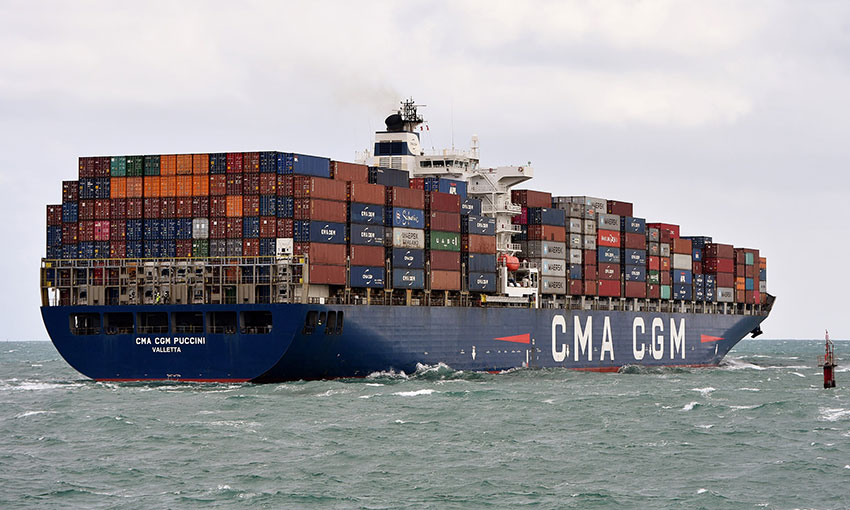AN INTERIM report from the Australian Transport Safety Bureau has shown some light on the causes behind a loss of steering incident in May in Melbourne.
The ATSB opened an investigation shortly after the incident occurred.
The 277-metre CMA CGM Puccini had sailed from Swanson Dock in the Port of Melbourne on the morning of 25 May under the conduct of a pilot and initially with two tugs in attendance, the interim report from the ATSB’s ongoing investigation into the serious incident details.
“Shortly after 0418, during the turn to leave Swanson Dock, the ship’s master and chief mate noticed the rudder response appeared sluggish,” ATSB Chief Commissioner Angus Mitchell said.
“However, neither raised their observations with each other, or the pilot.”
About 25 minutes later, by which point it had passed under the Westgate Bridge and both tugs had been dismissed, the ship was moving at about 6.6 knots when the helmsman reported that the rudder was not responding to the steering wheel.
With its speed increasing, the ship moved further off course and tracked toward the western edge of the dredged navigable Yarra River channel.
“Despite efforts by the pilot and crew to slow the ship and correct its swing, the ship struck a navigation beacon, and its stern passed over the edge of the navigable channel,” Mr Mitchell said.
The two tugs were nearby and returned and helped control the ship’s erratic movement. The ship was then moved to Webb Dock for inspection.
“Despite multiple, extensive inspections and tests by the ship’s engineers and two independent service engineers at Webb Dock, the erratic behaviour of the steering gear could not be replicated, and no fault was identified.”
On 26 May the ship was cleared to leave port and it departed on 27 May for Port Botany, Sydney.
“The following day, in preparation for arrival to Port Botany, the ship’s crew again tested the steering gear,” Mr Mitchell noted.
“During this testing, the steering again began to behave erratically.”
At this time, the second engineer, who had joined the ship in Melbourne, noticed the steering system’s hydraulics were incorrectly configured. After the by-pass valve of the (non-running) pump was closed, there were no further erratic rudder responses.
The ship subsequently sailed for Brisbane on 30 May, where it berthed without incident on 1 June.
The ATSB began an investigation on the basis of initial reports that, despite multiple inspections, the erratic behaviour of the ship’s steering on 25 May remained unexplained over the following days and the ship departed Melbourne with no problem identified.
ATSB investigators subsequently attended the ship in Brisbane on 2 June, and again in July when the ship returned to Melbourne, during which they conducted extensive testing of the steering systems, interviewed the crew, and obtained other evidence including various documents and recorded data.
Investigators also obtained evidence from the incident pilot and the pilotage provider, AMSA, and port authorities.
“As the investigation progresses, our team will verify data and evidence to confirm the order of events, analyse the ship’s steering arrangement and operation, review crew actions, and assess shipboard and CMA CGM fleetwide procedures and steering gear guidance, operation, information sharing and testing,” Mr Mitchell said.
A final report will be released at the conclusion of the investigation.
“However, should a critical safety issue be identified during the course of the investigation, the ATSB will immediately notify relevant parties so appropriate and timely safety action can be taken,” Mr Mitchell said.





